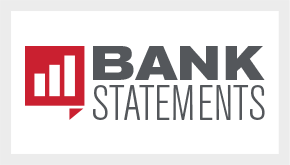Biden Victory Tax Concerns Could Spur M&A Activity
As Election Day approaches in the U.S., business owners and their professional advisers are analyzing and evaluating the potential impact of the election on the business environment. Among these considerations is the impact of a potential Joe Biden presidency on the federal tax system.
While we cannot predict the outcome of the election or whether Biden's proposed campaign tax platform will pass, there are several components that may shape the landscape of the mergers and acquisitions environment in particular, encouraging business owners to consider year-end deals.
Not only does the Biden tax plan propose to increase the corporate and capital gains tax rates, but it also proposes to phase out the qualified business income deduction. The prospect of these key changes has stirred conversation around a possible uptick in mergers and acquisitions through the end of the year and even into 2021 as business owners seek to divest their interests for a lower tax bill.
Of course, Biden would have to win the presidency, and the Democratic Party would have to gain control of the Senate and keep control of the House of Representatives in the election for these tax proposals to become law.
Further, tax is only one consideration for a business owner contemplating a sale. Owners who are aware of the potential tax increases, but not quite ready to exit their companies in full, should carefully consider an installment sale or selling only a portion of their interest.
Corporations
The Biden tax plan provides for an increase in the corporate tax rate from the current 21% to 28%, which is lower than the 35% corporate tax rate in effect prior to the passing of the Tax Cuts and Jobs Act, which went into effect on Jan. 1, 2018.[1] In addition to increasing the corporate tax rate, the Biden tax plan intends to apply a minimum 15% tax rate on book income — income reported on financial statements — of corporations with at least $100 million of book income.
Thus, if the Biden tax plan is enacted, business owners who hold their business interest in C corporations can anticipate an overall increase in the taxes associated with running and operating their corporations. For certain business owners, this income tax increase alone may make an existing investment too expensive to hold.
Capital Tax Rates
In addition to increasing the corporate tax rate, the Biden tax plan proposes to dramatically increase the capital gains — and qualified dividend — tax rate to ordinary income rates for income above $1 million.
If this increase and the proposed individual tax rate increases are implemented, then the increase in the highest capital gains tax rate would effectively double the tax rate from 20% to 39.6% on capital gains in excess of the $1 million threshold.
Because the sale of a business interest frequently results in capital gain to the seller, a change in the capital gain rates would significantly impact the tax consequences of divestiture from a business investment.
Qualified Business Income Deduction
In addition to increasing tax rates, the Biden tax plan will accelerate the expiration of a certain business deduction implemented under the TCJA for certain high-income taxpayers. The TCJA implemented the qualified business income, or QBI, deduction to allow various pass-through business owners, including owners of partnerships, limited liability companies and S corporations, as well as sole proprietors, to deduct 20% of their business income. This allowed these owners to only pay tax only on the remaining 80% of their business income, effectively reducing the top tax bracket on this income from 37% to 29.6%.
This deduction is currently phased out for high-earning business owners of specified-service trades or businesses, including doctors, lawyers, accountants, consultants, etc. However, for many high-income pass-through business owners, the deduction is available provided they pay sufficient wages or own enough depreciable property.
The Biden tax plan proposes a complete elimination of the QBI deduction for anyone who earns more than $400,000 per year. The phaseout of the QBI deduction would increase the tax rate on QBI to 39.6% — the highest individual rate under the Biden tax plan — for those earning greater than $400,000. Thus, as with the proposed changes to corporate taxes, the potential phaseout of this deduction increases the income taxes associated with operating a pass-through business.
The QBI deduction is currently set to expire on Dec. 31, 2025, thus business owners may already be anticipating increased taxes in the near future. However, the acceleration of the elimination of this deduction for high earners may be sufficient for business owners to accelerate their decision-making process and motivate them to consider a liquidation in the near term.
Contemplating a Sale
The proposed tax increases have sparked the question for many business owners: Is now the right time to sell my business interest? To demonstrate the potential impact of the Biden tax plan on the net proceeds of a sale of business, consider a simplified example below.
This example assumes that the company sold is a pass-through entity, that there is zero basis in the interests sold, and that all gains are long-term capital gains.
Timing |
Sales Proceeds |
Taxable Gain |
Federal Tax Rate |
Tax |
Net Proceeds |
Pre-Biden Tax Plan |
$50M |
$50M |
20% |
$10M |
$40M |
Post-Biden Tax Plan |
$50M |
$50M |
39.6% |
$19.8M |
$30.2M |
If the business being sold were a C corporation, the tax associated with the sale would also be significantly higher under the Biden tax plan as compared with the current tax law. While this example is oversimplified, it does demonstrate the significant increase in taxes associated with a business sale in an era governed by Biden's plan.
In addition to increased tax on the sale of the business, the plan would increase the operating taxes of a business. The proposal would impact C corporations by increasing the corporate income tax rate, and pass-through entities by phasing out the QBI deduction.
Consequently, business owners, investors and their advisers should be contemplating exit strategies if Biden is elected and both houses of Congress are held by the Democratic Party. For those ready to exit their investments or the company they founded, now — or realistically 2021 considering the legislative process involved with passing a substantive change in existing tax law — may be a prime time to sell.
Business owners who are not ready to sell, or who do not want to make business decisions based entirely upon what Congress may or may not do, may consider holding their interests. When the time is right to sell, these owners can consider use of the installment sale method. While this method would require the seller to receive the sale proceeds over time, it could also serve to keep the capital gains — or at least a portion of them — realized on the sale under the proposed $1 million threshold, causing that portion to be taxed at lower capital gains rates, and ultimately saving significant tax liability.
If a seller is truly undecided as to whether to sell a business interest, then perhaps a strategy providing the best of both worlds could be implemented, where the business owner would sell only a portion of the business interest.
This scenario could be attractive to a business that would benefit from an infusion of cash, but still requires the current operating team to keep the business going. Accordingly, seeking that investor and consummating the sale at a time when tax rates are relatively low makes sound economic sense.
If President Donald Trump is reelected, a push to liquidate business interests is less likely. Business owners will continue to watch for the extension of certain TCJA benefits, including the QBI deduction, that are set to expire in a few years. They may begin preparing to sell their business interest in anticipation of the expiration of these benefits. However, the longer timeline for losing these benefits, coupled with a low corporate tax rate — which is not set to expire — may drive business owners to focus on growth before they exit, in hopes of recovering business value lost due to the global pandemic.
At the end of the day, business owners have to do what is right for them in their particular circumstances, but a better understanding of what is on the income-tax horizon under each presidential candidate's platform will enable them to make a more informed decision.




































